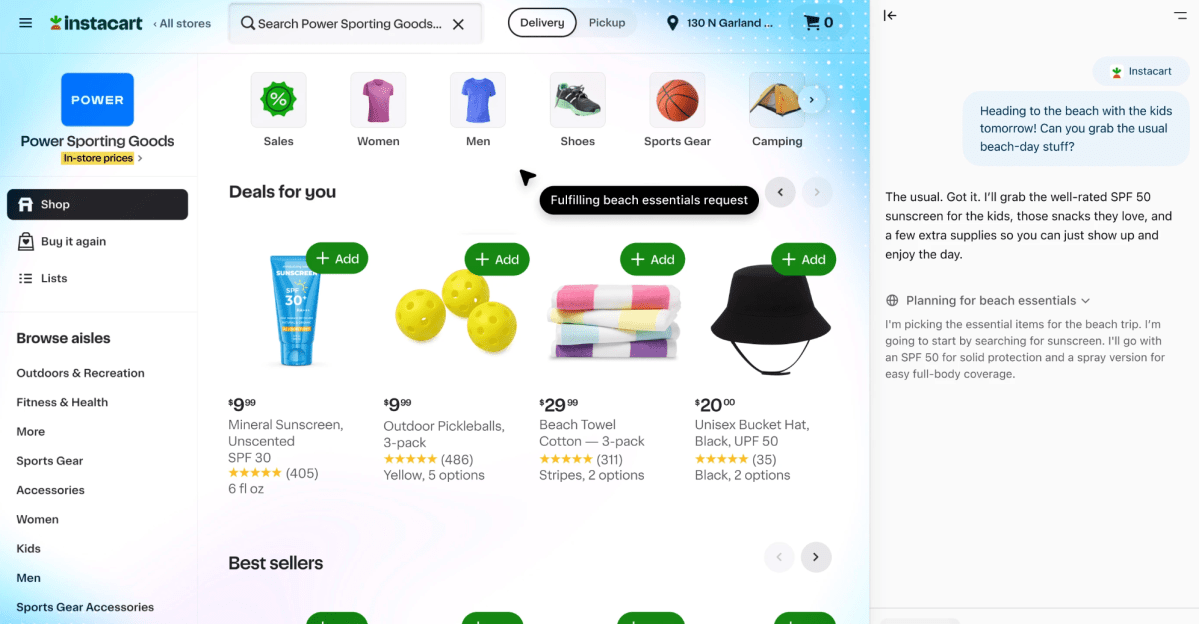OpenAI Unveils ChatGPT Atlas, an AI-Powered Web Browser

Key Points
- OpenAI launched ChatGPT Atlas, an AI‑powered web browser.
- Initially available on macOS; Windows, iOS, and Android support is upcoming.
- Agent mode is limited to ChatGPT Plus and Pro subscribers at launch.
- Features include memory‑based personalization, split‑screen chat, and cursor‑chat editing.
- The development team includes former Chrome and Apple engineers.
- ChatGPT Atlas competes in a growing market of AI‑enhanced browsers.
- Google plans similar AI integration into Chrome.
OpenAI announced the launch of ChatGPT Atlas, an AI‑enhanced web browser that integrates ChatGPT directly into the browsing experience. Initially available on macOS, the browser offers features such as memory‑based personalization, an agent mode for task automation, split‑screen chat, and a cursor‑chat tool for in‑line editing. Access for Windows, iOS and Android is forthcoming, and agent mode is limited to ChatGPT Plus and Pro subscribers. The rollout marks OpenAI’s latest push into AI‑driven internet tools, positioning Atlas as a competitor in the emerging AI browser market.
OpenAI Introduces ChatGPT Atlas
OpenAI announced the release of ChatGPT Atlas, an AI‑powered web browser that embeds the ChatGPT conversational experience directly into the browsing environment. The company presented the new product during a livestream, showcasing its capabilities and the team behind its development.
Platform Availability
ChatGPT Atlas is currently available globally on macOS, with plans to extend support to Windows, iOS and Android in the near future. The "agent mode" feature is initially restricted to ChatGPT Plus and Pro users.
Key Features
The browser includes several AI‑driven functionalities:
- Memory‑Based Personalization: The browser retains user preferences and context, allowing a more personalized and helpful experience.
- Agent Mode: Users can ask ChatGPT to perform actions such as booking reservations, purchasing flights, or editing documents on their behalf.
- Split‑Screen Interaction: Clicking a search result opens a side‑by‑side view of the webpage and the ChatGPT transcript, keeping the AI companion visible at all times.
- Cursor Chat: Selecting text in an email and pressing a button lets ChatGPT tidy up the sentence directly within the document.
- Incognito Support: Users can open private windows as needed.
Team Behind the Browser
The livestream featured OpenAI staff including Will Ellsworth (post‑training research), Adam Fry (product lead for ChatGPT Search), Ben Goodger (formerly of Google Chrome and Mozilla Firefox), Ryan O’Rouke (interface designer), Justin Rushing (formerly of Apple) and Pranav Vishnu.
Strategic Context
ChatGPT Atlas arrives as AI‑enhanced browsers gain momentum. Earlier initiatives such as OpenAI’s SearchGPT prototype and competing products like Perplexity’s Comet browser have highlighted the industry’s shift toward integrating generative AI into everyday web navigation. Google has also announced plans to embed its Gemini AI assistant into Chrome for similar task‑automation capabilities.
Outlook
OpenAI’s launch of ChatGPT Atlas underscores its commitment to expanding AI functionality beyond chat and search, aiming to reshape how users interact with the internet. By offering tools that can automate routine tasks and provide contextual assistance, the company positions Atlas as a contender in the evolving AI browser landscape.